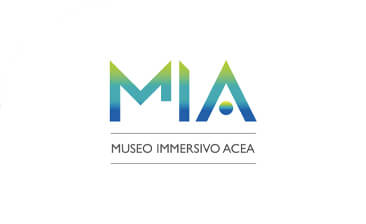These agreements were also signed by Rome Labour Inspectorate and by professional trade unions Fillea CGIL, Filca CISL e Feneal UIL
Rome Prefect Lamberto Giannini, Acea Ato 2 President Claudio Cosentino, delegate of the Labour Inspectorate Elio Guarnaccia and the representatives of professional trade unions Benedetto Truppa (Fillea CGIL), Raffaele Galisani (Filca CISL) and Giovanni Calcagno (Feneal UIL) have signed in Palazzo Valentini 4 “Legality Protocols” regarding the realization of major public works (CIPE approval no 62/2020). These protocols aim to strengthen, in the context of prevention, the protection of safety and legality in order to fight any attempt of criminal infiltration in the major public works building sites’ that are working on securing and modernization of the water supply system of the Metropolitan City of Rome. These interventions are co-funded by NRRP resources. During the signing there were also Massimo Sessa, president of the Superior Council of Public Works, and Giovanni Salvi, Acea's advisor for legality and fighting criminal infiltration and former Prosecutor General at the Court of Cassation.
These agreements, laid down by the regulations on monitoring infrastructures and priority settlements for the prevention and repression of mafia infiltration attempts, make part of the "National Framework Tender Protocol" signed last July by the Ministry of the Interior, Matteo Piantedosi and Acea CEO and General Manager Fabrizio Palermo. The agreements have the aim of strengthening, nationwide, the cooperation in the field of public safety considering Acea commitment in the implementation of major infrastructure works for the upcoming years.
The four protocols concern projects about the safety and the modernization of the most important water supply systems in the Rome metropolitan area, that are fundamental to central and southern areas, and to all western neighborhoods up to the coast.
What it has been established applies to all entities belonging to the production chain of enterprises and to all contractual cases, including those that may already be implemented. Moreover, extensive monitoring activities are planned for the operators involved in the phases of the project as well as the related financial flows and the safety conditions of building sites and workers employed. Finally, a Labour Flow Monitoring Board will be established at the Prefecture, in which a functionary from the Labour Inspectorate and the representatives of the most important construction trade unions will take part.
Discover the latest news and initiatives of the Acea Group

Acea for World Energy Saving Day

Visit the virtual museum about the history of the Acea Group

The channel for the commercial requests on land urbanisation

Acea turns the spotlight on the Rome Film Festival 2023

Acea is in the "Gold class" in the .trust research

Read more about our culture of inclusiveness